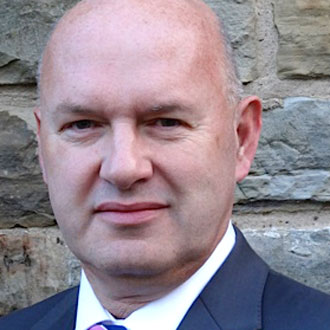If your neighbouring practice is in crisis, watch out

The message is clear – general practice is in crisis and the first cracks in the dyke only hint at problems to come. A flurry of highly publicised practice closures, the RCGP campaign and warnings from throughout the profession paint a picture of a service at breaking point, and yet politicians of all parties continue to make undeliverable promises on access, seven-day working and extended hours as we approach the next election.
The reasons for this pressure have been well rehearsed. Falling percentage of NHS funding from 10% to 8.5%, an ageing population with increasingly complex chronic problems, increased public expectation, a middle-aged GP/practice nurse demographic about to fall off a retirement cliff – the list goes on. The biggest concern, however, is the knock-on effect on whole areas as practices struggle or close down and how contagion can impact on previously successful practices.
GPs have always retired, emigrated or left the profession, but practices have achieved continuity with a steady flow of new entrants. Sadly, these quality applicants are much rarer now and those out there are often reluctant to take on an ownership/leadership model, naïvely believing that ‘just seeing the patients’ is what general practice is all about. This results in the burgeoning administrative load of running practices falling on a smaller number of principals who still carry a full clinical workload. The paucity of good ‘salaried’ GPs means they can command rates that many equity-owning partners couldn’t hope to achieve. Where now is the incentive to become a partner? If salaried doctors work to rule then partners are left to pick up the overflow, clinical and administrative.
Faced with retirement of senior GPs and failure to recruit, a practice has no choice but to close. The reality is that those now closing have probably been in crisis for years already. Stress, high levels of illness among GPs and a host of other factors have often led to falling standards and probably falling list sizes as patients vote with their feet.
This is the contagion that so worries me: not sudden closure, and block reallocation of thousands of patients to neighbouring practices, but the steady drift of high-workload patients. Patients who move practices are usually above-average users of the service, often with more complex needs, and they bring a disproportionate workload for their standard capitation. After all, when did you last see someone moving practice without a grievance or unmet need?
If your neighbouring practice is in crisis, watch out, because many of their more demanding patients will be joining your list – those who never visit the doctors (and are worth the same capitation fee) will not have any reason to move. Understanding this effect and supporting practices before they arrive at a crisis is the biggest single challenge for CCGs and NHS England. Whilst NHS England purportedly commissions primary care, all of the local intelligence is held by CCGs and I am deeply worried when CCGs hide behind the conflict of interest and national contract arguments as NHS England has neither the skills nor resources to address this crisis alone. Throwing money at the current model is not the answer. This would be spun by a hostile national press as a pay rise for GPs, and backfire.
GPs have to find and campaign for a way of increasing resources and staff and sharing expertise. For example, the unplanned admissions DES has necessitated hours of meetings, template design and managerial input in our practice and I suspect many others. But if all CCGs provided this expertise and support in a timely way, this would have reduced the load for all their constituent practices.
Finally, we should not forget that it is not just GPs under strain. Practice managers have more bureaucracy than ever before, reception staff deal with an increasingly frustrated public and cannot offer appointments and office staff process more mail. Our increasingly complex businesses are often run by managers who may not have the skills to address all these issues and then there is the ever thorny issue of whether the practice managers are empowered to manage the most unpredictable and expensive resources in the practice – the GPs, their employers.
Of course we need more clinician time, but if CCGs invested some of the lost 2% in support services, staff and training and GPs accept that we may not always be the best people to manage our practices, we could free up our most experienced clinicians to focus more on what we do best – managing complex patients.
Dr Paul Cook is a GP in Chesterfield, and a former clinical adviser and medical director.

Click here to find out more about our campaign
Pulse July survey
Take our July 2025 survey to potentially win £1.000 worth of tokens











